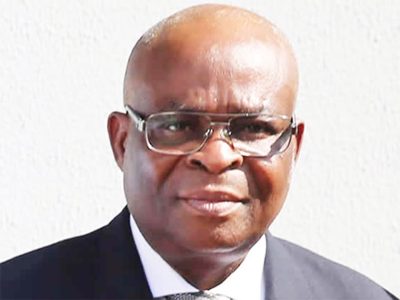In a major legal resolution, the federal government has reached an out-of-court settlement with former Chief Justice of Nigeria (CJN), Justice Walter Onnoghen, leading to his full acquittal on charges initially raised by the Code of Conduct Tribunal (CCT).
This development marks the end of a high-profile saga that began in 2019, when the Buhari administration charged Justice Onnoghen with non-declaration of assets, resulting in a controversial trial and removal from office. The Court of Appeal in Abuja has now nullified the 2019 CCT conviction, ordering that all of Onnoghen’s assets, previously forfeited, be returned to him.
The conflict dates back to January 11, 2019, when then-President Muhammadu Buhari’s administration filed charges against Onnoghen, accusing him of failing to declare certain assets between 2005 and 2016.

Before the trial formally began, the CCT issued an order on January 23, 2019, directing his suspension from office. The same day, President Buhari complied with the order, suspending Onnoghen and appointing an acting CJN. This swift and unprecedented action shocked the legal community, with critics labeling it as a politically motivated plot to unseat the highest-ranking judicial officer.
While the CCT proceedings continued, Onnoghen was also subjected to disciplinary review by the National Judicial Council (NJC), the constitutional body responsible for overseeing the judiciary. As these proceedings progressed, Onnoghen chose to submit his voluntary retirement on April 4, 2019.
Nevertheless, the CCT proceeded to convict him on April 18, 2019, barring him from public office for 10 years and ordering the forfeiture of his undeclared assets to the federal government. This conviction was widely criticized as a breach of due process, given that judicial officers are meant to face disciplinary actions via the NJC before any external tribunal can intervene.
In a public statement made in March 2021, Onnoghen revealed he believed he was removed because of false allegations connecting him to former Vice President Atiku Abubakar, President Buhari’s main opposition rival during the 2019 elections. This fueled widespread speculation that his ouster was politically motivated and aimed at influencing the judiciary during a critical election period.
After years of legal proceedings, both the federal government and Justice Onnoghen reached an out-of-court settlement, mutually recognizing that the CCT had erred in its handling of the case. The settlement, submitted to the Court of Appeal in Abuja, underscored that the tribunal’s conviction should have been precluded by the NJC’s disciplinary procedures.

Consequently, the three-member panel of the Court of Appeal, presided over by Justice Abba Mohammed, accepted the terms of settlement and discharged Onnoghen of all charges, reversing the CCT’s rulings and ordering the return of all previously forfeited assets, including his bank accounts.
Justice Onnoghen’s case has become a defining chapter in Nigerian judicial history, with many viewing it as emblematic of the threats facing judicial independence. Legal experts have pointed to this case as a cautionary tale about the dangers of executive overreach and the erosion of judicial autonomy, with observers warning that the misuse of state power in Onnoghen’s case has cast a long shadow over Nigeria’s democratic institutions.
This recent acquittal by the Court of Appeal aims to rectify one of the most contentious judicial decisions in recent memory and is seen as a vindication for Onnoghen. Many believe it serves as a reminder of the critical need for respecting judicial processes and ensuring the judiciary’s independence from political influence.









